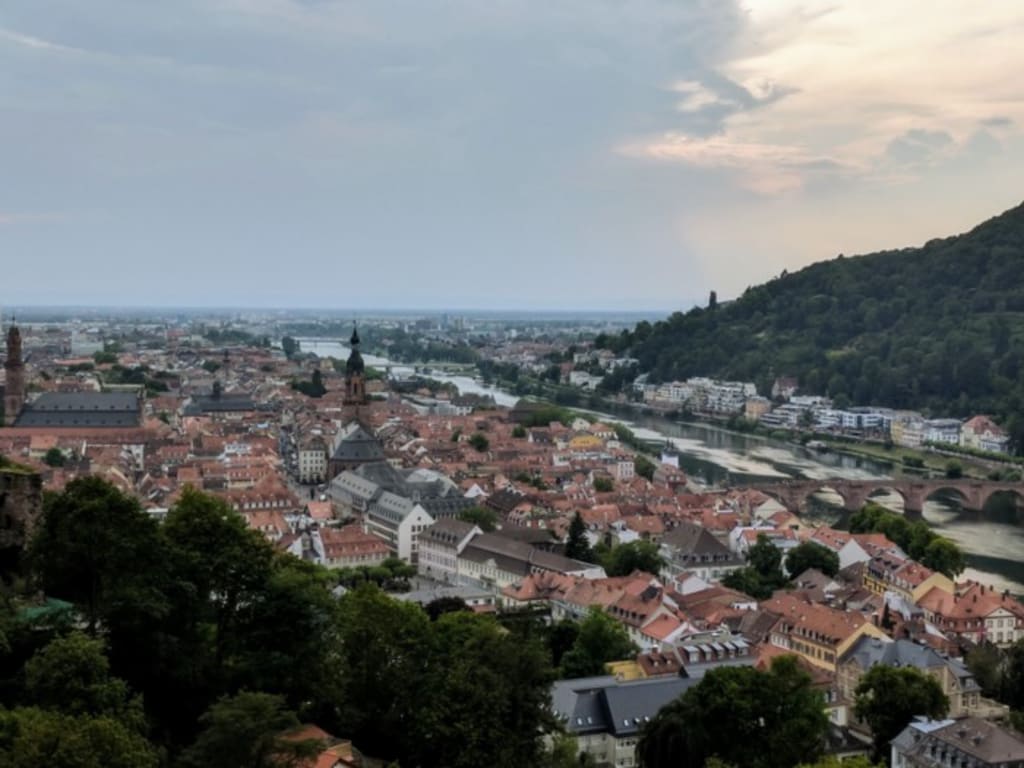Culture Shock: German Edition
Some tricks to overcome it

It took our family seven days to decide to move abroad to Germany and five months to plan and complete the move. I worried about many things but somehow overlooked culture shock.
The Oxford dictionary defines culture as an art manifestation of human intellectual achievement gathered collectively and ideas, customs, and social behavior of people or society. The U.S. National Library of Medicine defines shock as a life-threatening condition, which occurs when the body is not getting enough blood flow (yikes!).
Put these two words together, and it is a recipe for intimidation. But, is it possible for a person to experience culture shock when traveling only for leisure? Or is it an occurrence that only happens when exposed long-term to a foreign culture? These were two questions I did NOT ask myself when I decided to move to Germany. It’s been around two years since I crossed the Atlantic. Even though I have learned about German culture and language in general, there are times when it surprises me and shocks me into submission.
Here is a list of some culture shocks I have embraced in Germany so far:
- The temperature in Celsius, not Fahrenheit. I knew it was coming, but it took a while to check the weather app and compare the Celsius against Fahrenheit for an idea of what to expect. It was time-consuming, and somehow I overlooked that oven temperatures are also Celsius! A lesson I learned after I burned homemade cinnamon buns.
- The time follows the 24-hour-clock. I should’ve known how to tell time this way as a (previous) military spouse, but it never stuck. Somehow my brain wouldn’t make the connection after 14:00 hours. I would get anxious about being late or writing down the wrong time for an appointment. Nowadays, my phone shows the 24-hour-clock time, and I am better at it.
- Recycle, recycle, recycle! Blue bins are for paper/cartons. Brown bins are for compost. Yellow bags are for plastic, aluminum, among other things. Note: this is an oversimplification of the process. One day, I had to separate the windowed plastic in a letter envelope to recycle it (devil’s in the details). And glass? Sort glass by color, including clear, brown, and green. I still have no idea where the blue glass bottles go. It’s a mystery. Not to mention batteries and electronics…
- The metric system! I embraced the metric system thanks to my love of baking. It is much easier and accurate to weigh the ingredients. Less messy for me too. Another one is kilometers vs. miles. All traffic speed signs are in kilometers. I own a car with a U.S. specs speedometer, and I need to continue to remind myself to make sure I’m not speeding (outside the Autobahn). I learned this lesson the hard way.
- Stop the car at pedestrian crossings if there’s anyone who needs to cross. Period. What about following pedestrian traffic lights? Some don’t have them. It’s up to the driver to stop and let the pedestrian cross. The first time I had to cross a busy street with my daughter, I worried for nothing. As soon as we were at the crossing, the cars stopped so we could cross safely. Shocked and impressed, I always follow this rule.
- Also, do not cross the street anywhere except at pedestrian crossings. It sets an example for the children, as a very concerned citizen told me.
- Sunday is the day of rest, quite literally. No open businesses nor high noises. It is my favorite day of the week. I had to set reminders for Federal holidays since businesses won’t open on those days either. I need to ensure the fridge is full or risk going hungry for a day or two.
- The Pfand system. I’m not sure if this one counts as a culture shock. It’s a bottle return system. The Pfand is a deposit you pay each time you buy a bottle with a Pfand logo. The bottle can be plastic, glass, or aluminum. You get your money when you return the bottles.
The worst part of culture shock is that it sneaks up without warning, making people do things outside of their comfort zone. I think my conscious decision to move to Germany prepared me on a subconscious level for the changes I encountered. But it wasn’t enough. Besides continuing to learn the language, I had to develop other ways to deal with the culture shock and anxiety.
Here are some tricks I use to overcome culture shock:
- Keep an open mind and embrace change. After all, it takes time for new habits and routines to become the new normal. The same should apply to culture shock. I admit there are good days and bad days, but I noticed that soon those good and bad days get longer in between.
- Be patient. Some habits or changes will be easier than others to adapt to a new lifestyle. It also takes time for anything new to become part of a daily routine.
- Stay positive. It’s hard to stay positive all day, every day, because homesickness can sneak up at any moment. I admit there have been days where I wish to go back. Then I realize that even though it’s ok to miss home, I have my family with me, and they are my home. If you’re by yourself in a foreign country, you’re already brave to tackle anything you want. In my case, I find that making a conscious mental effort to stay positive helps a bit.
- Find a way to meet new people. Preferably natives if possible. They can serve as a go-to person to discuss the dos and don’ts. Due to COVID restrictions, it may not be possible to meet new people in person or join a club. The HelloTalk app is an excellent option to meet new people. It’s also free.
- Learn the language. Many Germans speak English as a second language. They went through the arduous process of learning it. It’s only fair to try and learn German (or any other language that may apply). There’s also that saying that communication is key. It helps if both parties speak the same language.
The not-so-devastating part about experiencing culture shock is that there will come a time when it won’t be an issue. Human beings adapt and overcome challenges every single day, and this would be no different.
About the Creator
Diana Lotti
Traveler. Photographer. Storyteller. MBA. Writing about first-hand experiences involving travel, photography, and self-development. Twitter: @DianaILotti and IG: @dlottiphotography






Comments
There are no comments for this story
Be the first to respond and start the conversation.